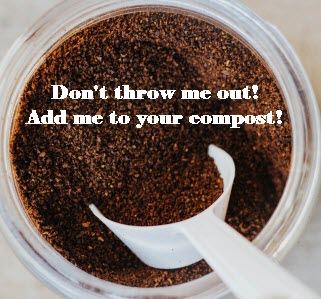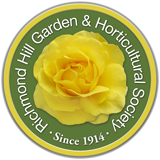Coffee grounds are a good source of micronutrients such as nitrogen, magnesium, copper, calcium zinc, manganese and iron for your soil.
 A good way to use used ground coffee is as a mulch around plants. Do not throw the grounds onto the garden soil in thick clumps or layers; as they will clump and form a surface that is hard for water to penetrate. Best to sprinkle the grounds over the surface in combination with other mulches to stop it from forming a crust and allowing the nitrogen to be worked on by microbes in your soil. In this way, the nitrogen will gradually be converted into a form that plants can take up and use. You may consider coffee grounds, another effective slow-release organic fertilizer.
A good way to use used ground coffee is as a mulch around plants. Do not throw the grounds onto the garden soil in thick clumps or layers; as they will clump and form a surface that is hard for water to penetrate. Best to sprinkle the grounds over the surface in combination with other mulches to stop it from forming a crust and allowing the nitrogen to be worked on by microbes in your soil. In this way, the nitrogen will gradually be converted into a form that plants can take up and use. You may consider coffee grounds, another effective slow-release organic fertilizer.
Coffee grounds are not overly acidic as most of their acid is lost while the coffee is brewed. Their acidity is about 6.6, which is good for most vegetables.
Be aware some plants don’t do well with coffee grounds – especially tomatoes, peppers, eggplants – for them, use powdered eggshells. (See the article on Saving Eggshells)
You can also add the coffee grounds to a compost heap where their relatively high nitrogen content can add to your compost. Coffee grounds can be used to help balance out other compost such as fallen leaves, straw or shredded paper. Its small particle size means it’ll start to get to work immediately. The microbes will break down the nitrogen into the plant-available form you need while generating heat to speed up the whole decomposition process and quicken your compost goods to be ready as compost sooner.
Worms love coffee grounds too—it aids their digestion. If you have a worm bin, this is also a great ingredient to add along with your other ingredients.
Not a coffee person? You can use tea leaves or tag bags as well. But beware, some teabags contain plastic particulates, so if you’re going to add the whole bag to your compost, switch to a brand with fully biodegradable bags. Or simply remove the grounds from the bag before adding it to your compost.
BTW: You can also recycle banana peels for your gardening. Read the article
Submitted by Doreen Coyne, a member of the Richmond Hill Garden & Horticultural Society. Base photo without words by Andrea Tummons on Unsplash



